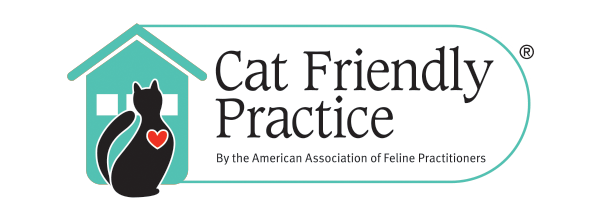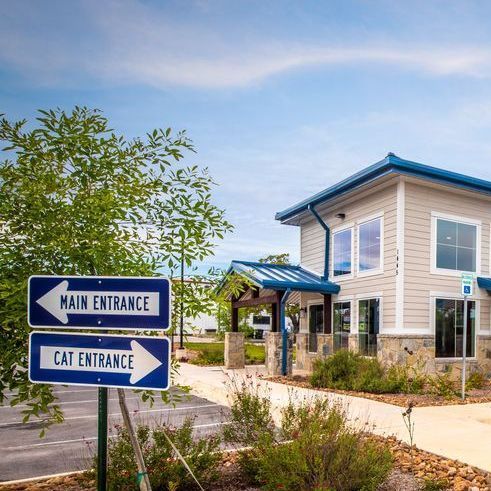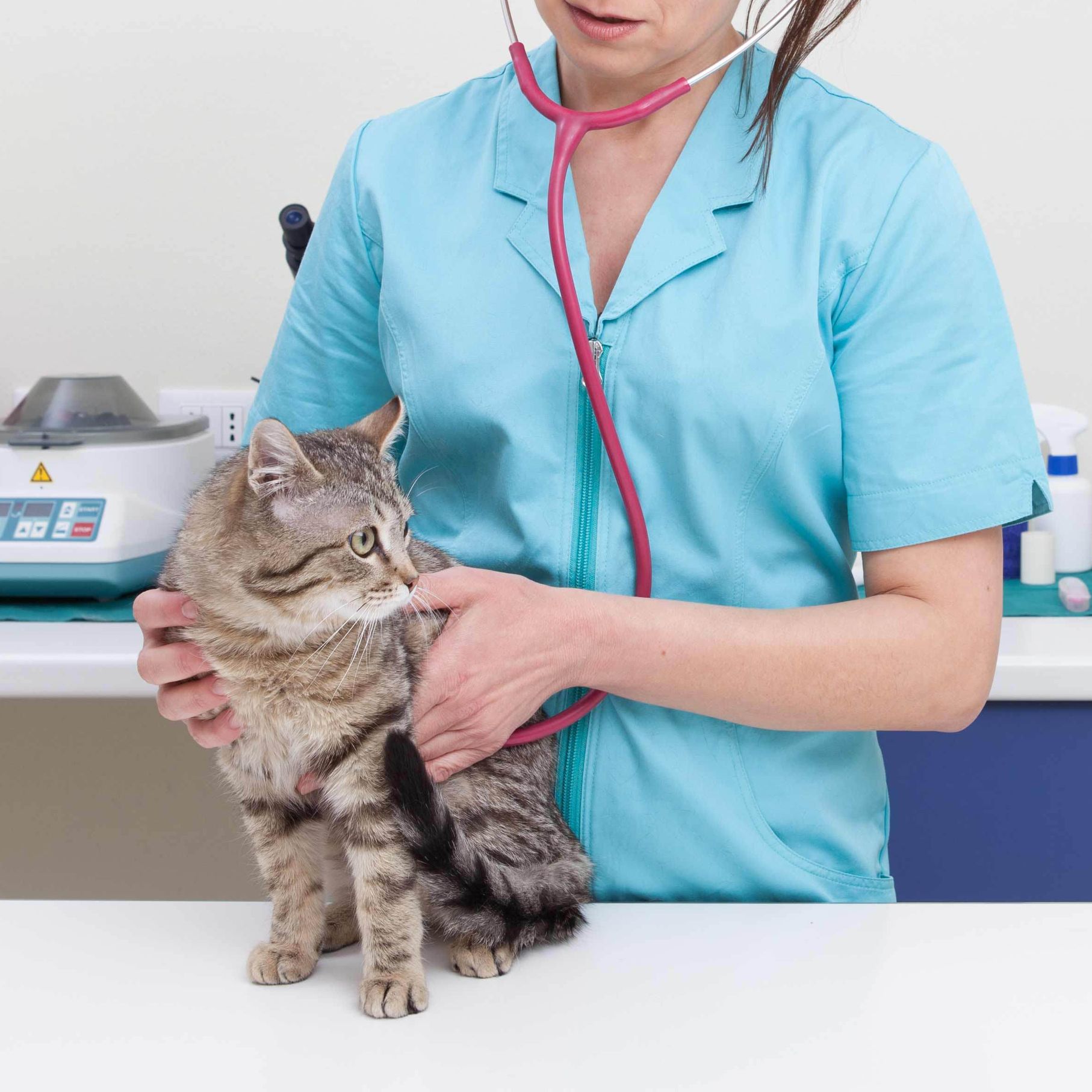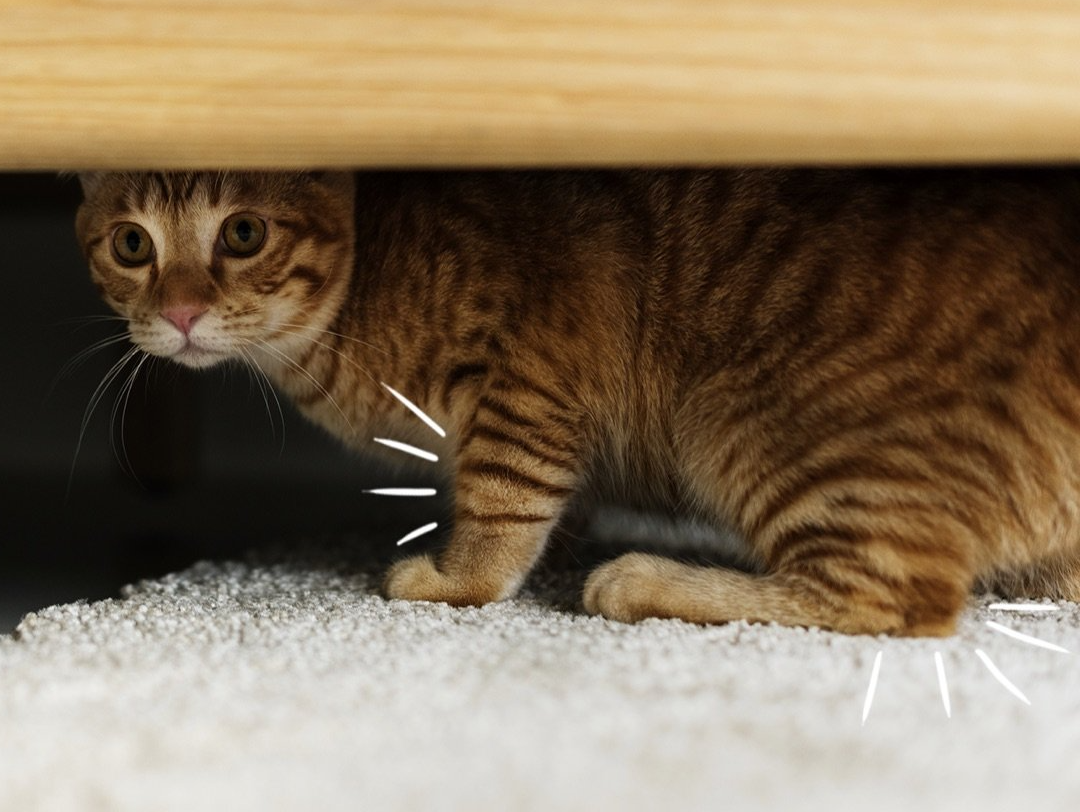We Are Certified Cat Friendly
County Line Veterinary Clinic has been certified as a cat friendly practice from the American Association of Feline Practitioners. Our commitment is to help increase successful feline visits with the implementation of tools specific for the comfort and stress reduction of our feline friends. This is accomplished with the integration of our “Dog Free Zones” and simple stress reducing techniques.
To learn more about Cat Friendly Certification, click here: https://catvets.com/cfp/cfp

We Are Certified Cat Friendly
County Line Veterinary Clinic has been certified as a cat friendly practice from the American Association of Feline Practitioners. Our commitment is to help increase successful feline visits with the implementation of tools specific for the comfort and stress reduction of our feline friends. This is accomplished with the integration of our “Dog Free Zones” and simple stress reducing techniques.
To learn more about Cat Friendly Certification, click here: https://catvets.com/cfp/cfp

Our Location Was
Designed With Cats In Mind
Each Cat Friendly Practice® has a waiting area just for cats or an alternative to decrease waiting room stress (i.e. cat-only appointment times, bringing your cat right to the exam room, etc.). We have a separate entrance and waiting room especially for cats. This allows your cat to stay away from the sight, sound, and smell of other animals. Cat Friendly Practices know these can cause anxiety for cats.


Veterinary Team Who
Understands Cats
Our veterinary team is trained to speak softly, avoid direct eye contact with your cat, and move slowly. They know these actions help keep your cat calm and feeling in control. If any team member sees your cat becoming stressed or anxious, they will pause the check-up, let your cat take a break, and resume when she is calmer.
Routine Veterinary Visits are
Vital to Helping your Cat
Live a Long, Healthy Life
As a member of the family, your cat deserves the very best possible care. One of the best ways to ensure your cat stays healthy is by making sure they have an annual preventive care checkup, or more frequently for senior cats and those with chronic conditions.
Routine Veterinary Visits are Vital to Helping your Cat Live a Long, Healthy Life
As a member of the family, your cat deserves the very best possible care. One of the best ways to ensure your cat stays healthy is by making sure they have an annual preventive care checkup, or more frequently for senior cats and those with chronic conditions.
Routine Veterinary Visits are Vital to Helping your Cat
Live a Long,
Healthy Life
As a member of the family, your cat deserves the very best possible care. One of the best ways to ensure your cat stays healthy is by making sure they have an annual preventive care checkup, or more frequently for senior cats and those with chronic conditions.
Why Your Cat Needs Regular Veterinary Visits:
-
Cats Age Much More Rapidly Than Humans
A cat reaches the approximate human age of 15 by his first birthday. By his second birthday, he reaches the approximate human age of 24. Each year after, your cat ages approximately 4 “cat years” for every calendar year. So, your 8-year-old cat would be 48 in human years. Checkups are crucial because a lot can happen in a “cat year”.
-
Cats Are Masters at Hiding Illness
Cats are excellent at hiding signs that they are sick or in pain. Your cat could develop a health condition before you notice anything is wrong. During your checkup, your veterinarians can spot small changes or abnormalities and detect many problems before they advance or become more difficult to treat.
-
Your Cat May Be Overweight
Over 50% of cats are overweight or obese. As part of the checkup, your veterinarian will check your cat’s weight at each visit and provide nutritional and enrichment recommendations to help keep your cat at an ideal weight. Just an extra three pounds can put your cat at risk for diabetes; heart, respiratory, and kidney disease, and more.
-
Preventive Care Is Better Than Reactive Care
Regular checkups are part of being a responsible caregiver. They can help avoid medical emergencies by detecting conditions or diseases before they become significant, painful, or more costly to treat. Try choosing a Cat Friendly Practice® or a veterinary professional who earned a Cat Friendly Certificate to provide you and your cat with a unique experience. These veterinary professionals and practices understand cats and want to create a plan with you to help your cat remain healthy.
-
Kittens Have 26 Teeth, While Adult Cats Have 30
That equals a lot of dental care! Periodontal disease is considered the most common disease in cats three years of age and older. Often there aren’t any obvious signs of dental disease. Most cats with dental disease still eat without a noticeable change in appetite. Discuss your cat’s teeth at their annual checkup.
Could your cat be suffering
from osteoarthritis (OA)?
When cats are in unfamiliar places (like a veterinarian’s exam room), it’s doubtful they’ll show signs of joint pain. That’s why your veterinarian relies on you to report changes in your cat’s behavior for more accurate diagnoses. Exactly how well you know your cat — their personality, daily habits, and silly quirks — is critical when it comes to their health.
Use these resources as a good first step in measuring where your cat is on the spectrum between “healthy” and a cat with joint disease.:
Recognizing Your Cat's Normal vs. Not Normal
Everyday Signs of a Cat in Pain
The Impact of Chronic Pain on Your Cat's Quality of Life

Ready to Schedule A Cat Friendly Appointment?
Call us at
830-626-2582
Website Design By: Rise Local Consulting | Privacy Policy | Terms of Service
All Rights Reserved | County Line Veterinary Clinic
